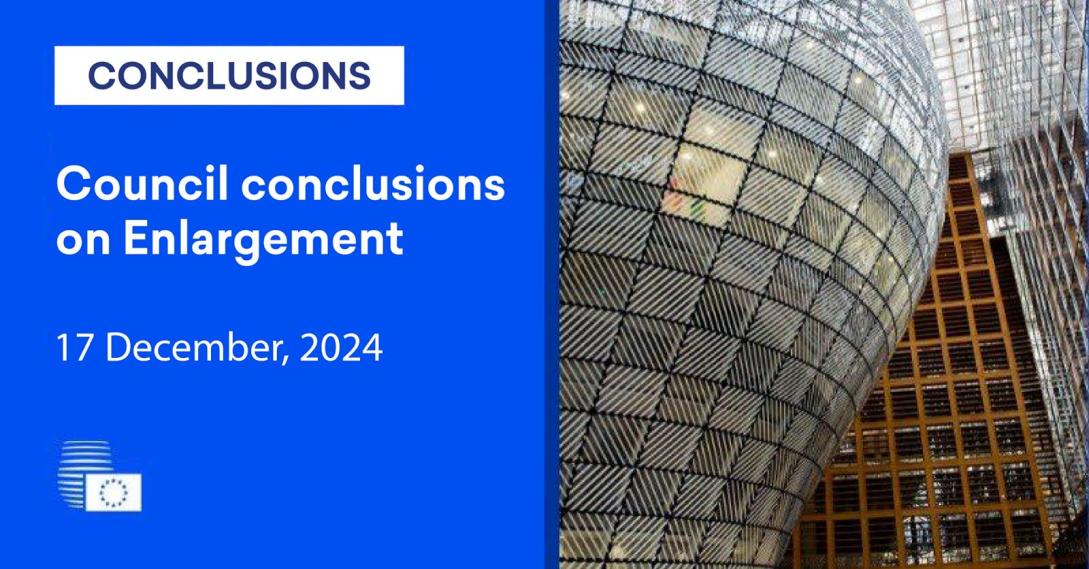Extracts on Georgia from the Conclusions of the Council

GEORGIA
132. In light of recent European Council conclusions, the Council reaffirms the Union’s readiness to support the Georgian people on their European path. At the same time, it reiterates the EU’s serious concern regarding the course of action taken by the Georgian government, including the adoption of the law on transparency of foreign influence, as well as other legislation which runs counter to the values and principles upon which the EU is founded and which represent backsliding on the steps set out in the Commission’s recommendation for candidate status. The Council recalls that the European Council in June and October 2024 noted that such a course of action jeopardises Georgia’s European path, de facto leading to a halt of the accession process. The Council regrets the Georgian government’s recent decision to suspend the country’s EU accession process until 2028.
133. The Council strongly condemns the violence against peaceful protesters, media representatives and politicians. The Georgian authorities must respect the right to freedom of assembly and of expression, and refrain from using force. All acts of violence must be investigated and those responsible held accountable.
134. The Council calls on the Georgian authorities to urgently revert to the EU path and adopt democratic, comprehensive and sustainable reforms, in line with the core principles of European integration. The Council underlines the importance of reverting to the implementation of the nine steps set in the 2023 Enlargement communication of the Commission.
135. The Council is deeply concerned about the backsliding in the areas of democracy, rule of law and fundamental rights. Georgia needs to guarantee the full respect for fundamental rights, including the freedom of expression and assembly, and the freedom, independence and pluralism of the media, as well as the rights of LGBTI persons.
136. The intimidations, violence and discrimination against Georgia’s civil society representatives, political leaders, civil activists and journalists in Georgia need to cease. Recalling that a functioning civil society is a crucial component of any democratic system, the Council calls on Georgia to ensure that its vibrant civil society is able to function without restrictions, and actively, inclusively and meaningfully engage in the policymaking process.
137. The Council notes with serious concern the preliminary findings by OSCE/ODIHR, which indicate that the parliamentary elections on 26 October were characterised by several shortcomings and a tense and highly polarised environment. In order to improve the conditions for the proper functioning of democratic institutions, the Council strongly encourages Georgia to investigate and address electoral irregularities and allegations thereof, and to address these and other OSCE/ODIHR and Council of Europe bodies’ recommendations, also recalling that a comprehensive electoral reform is part of the nine steps.
138. The Council calls on the Georgian authorities to take concrete actions to overcome the increasing polarisation and refrain from actions that could further deepen the political tensions, such as anti-EU rhetoric and disinformation.
139. The Council regrets the backsliding in the functioning of the judiciary, and the growing lack of independence of institutions in general. Substantial efforts towards a comprehensive reform of the judiciary, in line with European standards and recommendations of the Venice Commission, are still required. Of equal importance is the development of a strong track record in fighting corruption and organised crime, and the implementation of de-oligarchisation actions.
140. On the economic criteria, the Council notes the moderate level of preparation and limited progress in developing a functioning market economy. The Council commends the continued implementation of sound fiscal and monetary policies and encourages Georgia to strengthen the independence of the central bank and implement other necessary structural reforms.
141. The Council calls on Georgia to urgently fulfil the outstanding visa liberalisation benchmarks including by aligning with the EU visa policy, addressing unfounded asylum applications and ensuring compliance with the fundamental rights requirements.
142. The Council takes note of Georgia’s continued implementation of the EU-Georgia Association Agreement including the Deep and Comprehensive Free Trade Area.
143. The Council reaffirms the EU’s support to Georgia’s sovereignty, independence and territorial integrity within its internationally recognised borders and underlines that the EU remains firmly committed to peaceful conflict resolution and its policy of non-recognition and engagement, including through the presence of the EU Monitoring Mission in Georgia.
144. The Council reiterates its strong expectation for Georgia to substantially step up its efforts towards full alignment with EU CFSP positions and restrictive measures as a matter of utmost priority, including those against Russia and Belarus, and in line with the principles of sovereignty and territorial integrity of all states. The Council also calls on Georgia’s authorities to refrain from actions and statements against the EU positions on foreign policy. The Council encourages Georgia to continue its cooperation on preventing the circumvention of EU restrictive measures.
Read the full text of the Council conclusions from 17 December 2024: https://europa.eu/!vqh9nP
